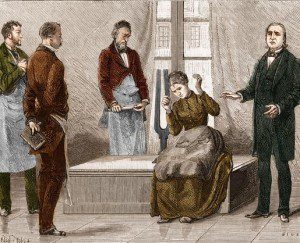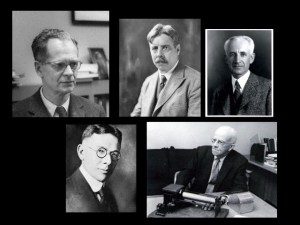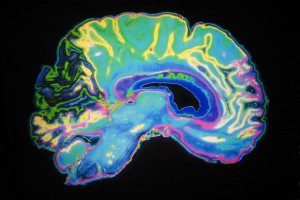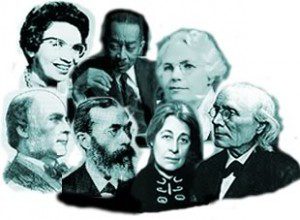During ancient times, rudimentary manifestations of psychology found expression through the roles of priests, shamans, wizards, seers, medicine men, sorcerers, and enchanters. These diverse practitioners combined elements of magic, religion, and herbal remedies in their endeavors to alleviate both physical and psychological distress experienced by their patients. Over time, these nascent practices gradually transformed into the distinct domains of medicine, religion, and psychology, while retaining vestiges of their interconnected influences. Presently, these fields continue to coexist, each leaving its mark and intermingling with the others in various ways.
History of Psychology in Classical Antiquity
The period we know as classical antiquity begins with the Homeric period and concludes with Hellenic cultural diffusion.
History of Psychology in the Middle Ages

The Middle Ages has often been criticized by twentieth-century psychologists, with scholars like Edwin Boring, the author of “A History of Experimental Psychology” (New York, 1929), suggesting that late medieval thought leaned heavily on theology, which consequently created resistance to scientific exploration. Similarly, Gregory Zilboorg, in his work “History of Medical Psychology” (New York, 1941), asserted that medieval medical practitioners hesitated to delve into both normal and abnormal psychology, often attributing mental illness to demonic possession or witchcraft.
However, contemporary historians of psychology have revisited these notions and found them lacking in solid evidence. In fact, many historians have taken a more nuanced stance on the Middle Ages, acknowledging that medieval thinkers—philosophers, physicians, and theologians alike—did engage in discussions and debates about human behavior, albeit without extensive experimental testing. This revised perspective counters the claims that the mentally ill were routinely subjected to cruelty during the Middle Ages and paints a more compassionate picture of the era, highlighting the complexities of their theories and the broader cultural context in which they existed.
History of Psychology during Renaissance through the Enlightenment

The Renaissance marked a revival of interest in individual personality, laying the groundwork for the eventual emergence of psychology in the seventeenth century. This renewed curiosity gained further significance in the eighteenth century and eventually evolved into a formalized science in the nineteenth century. The historical trajectory of the term “psychology” itself mirrors this evolution. Although its etymological origins are rooted in Greek—where “psuche” refers to “soul” and “logos” to “word”—forming the compound “psychology,” its usage had sporadic beginnings in the 1600s and only gained widespread acceptance in the nineteenth century. During earlier periods, discussions centered on a “science of human nature” or referred to it as “mental” or “moral” science.
It’s worth noting that psychology was just one among several human sciences that emerged over the five centuries following 1400. However, these disciplines took considerable time to mature into their present forms. In fact, the concept of a student of human nature encompassed a diverse range of fields, including psychology, sociology, anthropology, economics, and political science. The convergence of these disciplines into their distinct modern identities occurred over an extended period of development.
History of Psychology in the Nineteenth Century
 The transformation of psychology into a formal science took place during the nineteenth century, propelled by a confluence of various factors. This evolution was a result of multiple influences: philosophers contributed the essential conceptual groundwork, physiologists brought insights into the nervous system and experimental techniques, while social reformers and psychiatrists spurred the application of science to enhance human well-being. This article aims to explore the significant movements, ideas, and breakthroughs that paved the way for the establishment of scientific psychology, with a particular focus on the developments within the United States, a prominent hub of twentieth-century psychology.
The transformation of psychology into a formal science took place during the nineteenth century, propelled by a confluence of various factors. This evolution was a result of multiple influences: philosophers contributed the essential conceptual groundwork, physiologists brought insights into the nervous system and experimental techniques, while social reformers and psychiatrists spurred the application of science to enhance human well-being. This article aims to explore the significant movements, ideas, and breakthroughs that paved the way for the establishment of scientific psychology, with a particular focus on the developments within the United States, a prominent hub of twentieth-century psychology.
The culmination of World War I marked the conclusion of both the nineteenth century and the psychological paradigms that defined that era. The devastating atrocities of the war shattered the optimistic belief in continual progress that had characterized the preceding century. The conflict was perceived by many as a manifestation of the Freudian unconscious, laying bare the depths of human darkness. Germany, in particular, faced a profound crisis across its political, cultural, and philosophical domains, prompting psychologists to present alternative worldviews to replace the ones that had crumbled.
Gestalt psychology, alongside its philosophical partner phenomenology, emerged as a response to this crisis. This new approach proposed a holistic analysis of consciousness, seeking to reaffirm traditional humanistic values. Throughout the war, psychology took a pragmatic turn, as psychologists engaged in various military projects. This shift was most pronounced in the United States, where applied psychology was already gaining prominence. Post-war, the field of applied psychology in the US saw an exponential growth in the number of practitioners, leading to significant tensions between academic researchers and professionals in practice.
In 1913, shortly before the war’s outbreak, John B. Watson initiated the behaviorism movement, which would go on to dominate American psychology throughout the twentieth century. Psychological ideas increasingly influenced how individuals perceived themselves, others, and their societies. By 1918, what had begun as an obscure scientific pursuit led by small groups of individuals was emerging as the foundational basis for a newly forming psychological society.
History of Psychology in the Early Twentieth Century

During the early 1900s, the landscape of American psychology retained a relatively modest scale. Nevertheless, it found itself positioned favorably for advancement due to its wealth of intellectual ideas concerning mental processes that had been cultivated in the preceding century. This reservoir of ideas allowed the nascent discipline to flourish. The field could readily capitalize on the expanding landscape of colleges and universities, establishing its presence and interacting with an intrigued public that exhibited a growing interest in all things “psychological.” This environment facilitated psychology’s progress, and by the conclusion of World War II, the discipline had firmly cemented its influential role within American society. Moreover, it had engendered a plethora of subspecialties, each offering solutions to an array of intellectual and societal quandaries.
In less than half a century, psychology underwent a rapid expansion across various dimensions. It flourished in terms of scientific output, the breadth of topics it addressed, and its practical applications. This surge in growth, however, was not without its implications. As the discipline burgeoned in terms of practitioners and specialized domains, it underwent a pronounced reduction in the eclectic intellectual perspectives and methodologies that had characterized its early years. This evolution encapsulated a trajectory of prosperity followed by a curtailment of the scientific avenues available for comprehending and analyzing the human psyche and behaviors.
History of Psychology after World War II
 The period preceding World War II witnessed psychology poised on the cusp of transforming into a significant academic discipline as well as a practical profession. While it grappled with certain unresolved questions, especially pertaining to the intricate relationship between mind and body, psychology’s academic sector had largely embraced British empiricism as its guiding philosophy. Consequently, it adopted a behavioristic approach in its orientation. Meanwhile, the professional facet of psychology was navigating the task of carving out its distinct identity. In this context, we will delve into the era following World War II, examining the trajectory of academic and professional advancements within the field. Our primary focus will be on the United States, a nation that had indeed assumed a leadership role in psychological studies even prior to the war’s outbreak.
The period preceding World War II witnessed psychology poised on the cusp of transforming into a significant academic discipline as well as a practical profession. While it grappled with certain unresolved questions, especially pertaining to the intricate relationship between mind and body, psychology’s academic sector had largely embraced British empiricism as its guiding philosophy. Consequently, it adopted a behavioristic approach in its orientation. Meanwhile, the professional facet of psychology was navigating the task of carving out its distinct identity. In this context, we will delve into the era following World War II, examining the trajectory of academic and professional advancements within the field. Our primary focus will be on the United States, a nation that had indeed assumed a leadership role in psychological studies even prior to the war’s outbreak.
Upon a cursory examination of the landscape of psychology since the conclusion of World War II, one might be led to perceive the discipline as grappling with significant challenges. It appears to be contending with formidable contenders such as biology and computer science, which seem poised to offer alternative explanations for its phenomena. The division between its fundamental scientific underpinnings and its practical applications appears insurmountable. Critics even question its status as a legitimate science, and some assert that its principles are inadequately established to warrant practical implementation. Even from within its own circles, there are proponents advocating for its relocation from the realm of sciences to that of the humanities. The field’s very conceptual foundations, particularly the inquiry into whether humans are purpose-driven organisms or mechanistic robots, remain unsettled. Its therapeutic interventions face criticism for their purported inefficacy. Additionally, a noticeable gender imbalance in recruitment threatens to bias its developmental trajectory. The widespread popularity of psychology in mainstream culture could potentially dilute its capacity to maintain a focused disciplinary identity.
However, the lens through which one views these challenges will profoundly shape their outlook on psychology’s future. These matters can be framed with either an optimistic or pessimistic perspective. While undeniable challenges lie ahead, an air of pessimism seems unjustified. It would be more sensible to interpret these challenges as indicative of the inherent challenges that accompany the maturation of a dynamic and crucial realm of knowledge in human affairs. Just as growth pains in individuals rarely lead to fatal outcomes and are usually surmounted, psychology’s challenges appear to be navigable. Indeed, there is a strong indication that the discipline will triumph over these obstacles and continue to offer a distinctive and invaluable contribution to knowledge throughout the twenty-first century.
Psychology in The 21st Century

As the turn of the millennium approached, a noteworthy transformation unfolded within the field of psychology—there was a discernible shift from behavioral perspectives to cognitive perspectives. This marked a departure from the exclusive reliance on empirical sources as the primary means of acquiring knowledge, making room for the inclusion of rationality as a legitimate source of understanding. In the initial years of the new millennium, psychology embarked on yet another transformation, perhaps a return to its origins. Within psychology, and more broadly across society, there has been a palpable embrace of spirituality, reclaiming faith as a credible and legitimate wellspring of knowledge. This trend is mirrored in the contemporary lexicon, where terms like intuition and faith have resurfaced with vigor (a prime illustration being the resounding success of Malcolm Gladwell’s best-selling book, Blink, which centers on intuitive thinking). This renewed acceptance of non-empirical avenues for knowledge underscores a profound shift in the zeitgeist.
The rapid advancements in information technology, exemplified by the ubiquity of the Internet and the prevalence of 24-hour news networks, have democratically democratized access to various dimensions of psychology. This growing accessibility is emblematic of the global reach of psychological knowledge. This expanding globalization of psychology finds resonance even within the latest iteration of the Diagnostic and Statistical Manual of Mental Disorders (DSM), which now underscores the necessity for mental health professionals to be attuned to cultural nuances while diagnosing and treating mental illnesses. This acknowledgment further amplifies the recognition of psychology as a versatile and culturally sensitive discipline, capable of engaging with the complex tapestry of human experiences across the globe.
Read more about Psychology in The 21st Century.
In the dynamic landscape of the late 20th and early 21st centuries, where economic decisions are often driven by bottom-line considerations, there appears to be an almost inevitable alignment with the ideas propounded by Francis Bacon at the dawn of the scientific revolution in 1620. Bacon’s assertion, “Human knowledge and human power meet in one; for where the cause is not known the effect cannot be produced,” reverberates with renewed resonance in the contemporary context. Within this milieu, all scientific disciplines find themselves compelled to offer practical insights and tangible benefits to remain relevant.
In this regard, psychology is no exception. As succinctly encapsulated in the mission statement of the American Psychological Association (APA), the aim of the discipline is multifaceted: to advance psychology as both a science and a profession, thereby contributing to the advancement of health, education, and the overall well-being of humanity. It can be argued that psychology, like an emerging individual, is progressing toward a stage of maturity where it is increasingly positioned to substantiate its practical utility. As society grapples with complex challenges and intricate interplays of human behavior, psychology’s potential to offer valuable insights and actionable knowledge stands affirmed.
The evolving zeitgeist, underscored by a pervasive drive for meaningful outcomes and the imperative to address contemporary societal concerns, is propelling psychology to demonstrate its effectiveness in guiding decision-making, improving mental health, enhancing educational practices, and fostering well-being. By embracing this pragmatic imperative, psychology not only ensures its continued relevance but also underscores its commitment to making a positive impact on individuals and society at large. Just as Francis Bacon’s vision intertwined knowledge and power, the current trajectory of psychology appears to be converging knowledge and utility, culminating in a discipline that is poised to deliver meaningful contributions in a world driven by empirical insight and applied wisdom.
Women and Minorities in the History of Psychology

In July 1892, the eminent psychologist G. Stanley Hall convened a small assembly of his peers at Clark University, leading to the establishment of the American Psychological Association (APA). The organization’s inaugural meeting occurred in December of the same year, with an additional 31 members, all of whom were white males (Fernberger, 1932). However, as psychology evolved during the first half of the 20th century, the demographic composition of the field began to shift. This transformation was most pronounced in the representation of women, while attention to the inclusion of non-white psychologists remained limited.
The proportion of women in psychology experienced incremental growth until the late 1960s. The catalyst for significant change emerged with the advent of the second wave of the women’s movement in the early 1970s, propelling a sustained increase in the number of women in the field. In 1960, only 17.5 percent of all doctoral degrees awarded in psychology in the United States went to women. However, by the turn of the millennium in 2000, this figure had surged to 66.6 percent, marking a profound transformation in the gender distribution of the discipline (Women’s Programs Office, 2006). Notably, psychology, particularly its applied domains, is presently experiencing a shift toward being predominantly occupied by women.
Concurrently, the 1960s witnessed transformative cultural and political movements that influenced the representation of minority psychologists. The civil rights movement and the emergence of black nationalism laid the groundwork for black psychologists to challenge the predominantly white and Eurocentric landscape of psychology. Their activism served as a beacon, inspiring other ethnic minority groups, such as Latino/Latina psychologists and Asian American psychologists, to assert their voices and concerns within the discipline. While progress in the diversification of psychology has been gradual compared to the integration of women, ethnic minority psychologists, both men and women, have persistently endeavored to reshape the theoretical, institutional, and practical underpinnings of the field.
Conducting Research on the History of Psychology

Every day, psychologists contribute to the annals of history, whether through seemingly trivial actions like sending an email or momentous achievements such as receiving a Nobel Prize. These actions, along with their contextual backdrop, become the historical data that enrich the narrative of our field. When distilled by historians of psychology, these data take on the form of stories that offer insight into the evolution of our science and profession.
The synthesis of meaning from historical data often takes the form of courses on the history of psychology, a staple in both undergraduate and graduate psychology curricula for many decades (Fuchs & Viney, 2002; Hilgard, Leary, & McGuire, 1991). Consequently, the majority of psychology students are exposed to this subject matter and its significance.
But why do psychologists hold such a keen interest in their own history? The words of two prominent British historians, Robin Collingwood (1946) and Edward H. Carr (1961), provide insight. Collingwood asserted that the “proper object of historical study… is the human mind, or more properly the activities of the human mind” (p. 215). Carr, on the other hand, suggested that “the historian is not really interested in the unique, but what is general in the unique” and that the study of history centers on understanding causes and continually asking “Why?” (pp. 80, 113). In essence, the study of history allows us to delve into the intricacies of the human mind, generalize beyond individual cases, and uncover the motivations, personalities, experiences, and expectations that underlie human behavior. A historical account does not rest content with a mere description of events; it seeks to thoroughly comprehend events and phenomena, unraveling the underlying reasons, such as the motivations behind an incident like the Kent State University shootings on May 4, 1970.
Collingwood’s perspective positions history as “the science of human nature” (p. 206), a definition that overlaps with psychology’s domain. While debates about the scientific nature of history are ongoing, historians employ empirical methods and hypothesis-driven inquiries similar to those used by psychologists. This close alignment between the two fields makes the study of history a natural extension of our psychological interests.
Historians of psychology embark on a journey to grasp the discipline’s evolution by dissecting the convergence of individuals, locations, and events within broader societal, economic, and political contexts. In the past four decades, the history of psychology has gained recognition as a legitimate area of research and scholarship. Enhanced tools, methodologies, and training for historians have yielded a significant body of research that enriches discussions about our collective past, the meaning underlying our present diversification, and the prospects for our future. This research paper will delve into the principles and practices of researching the history of psychology.